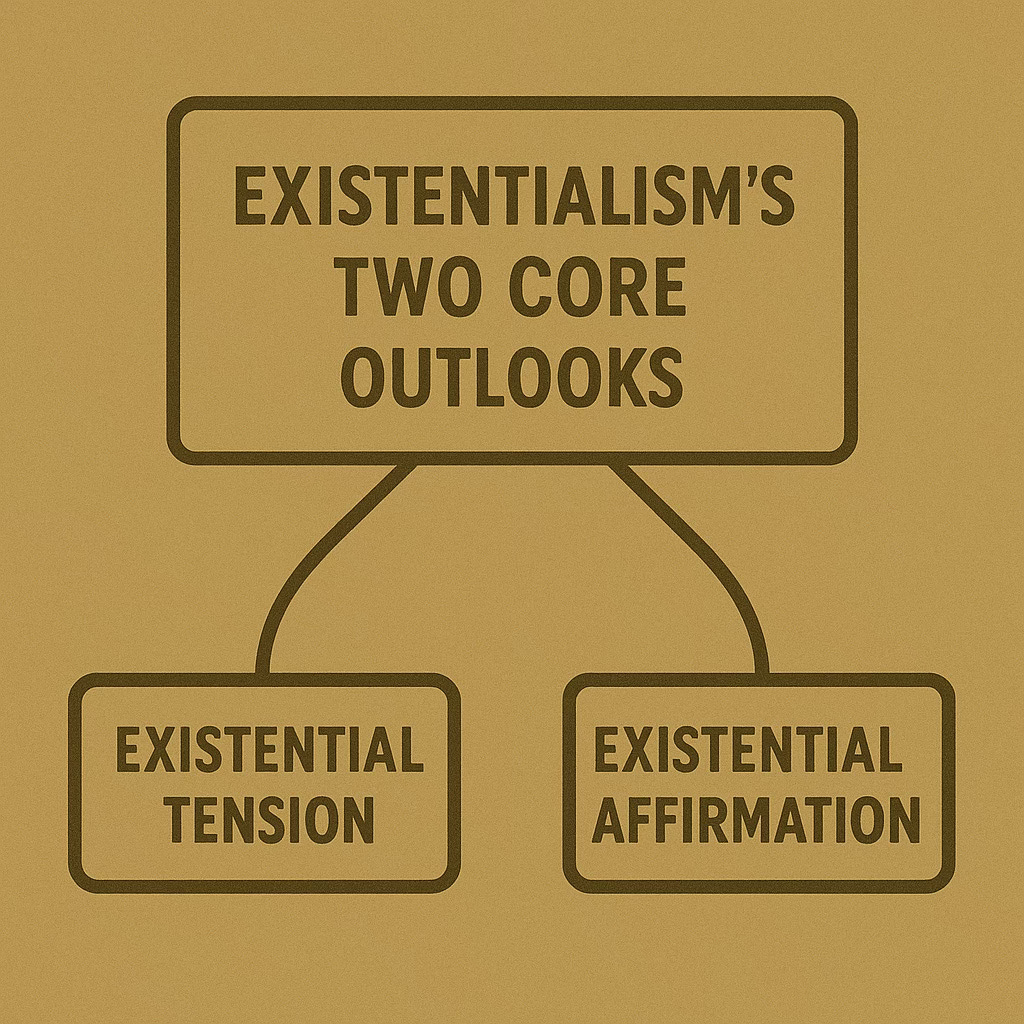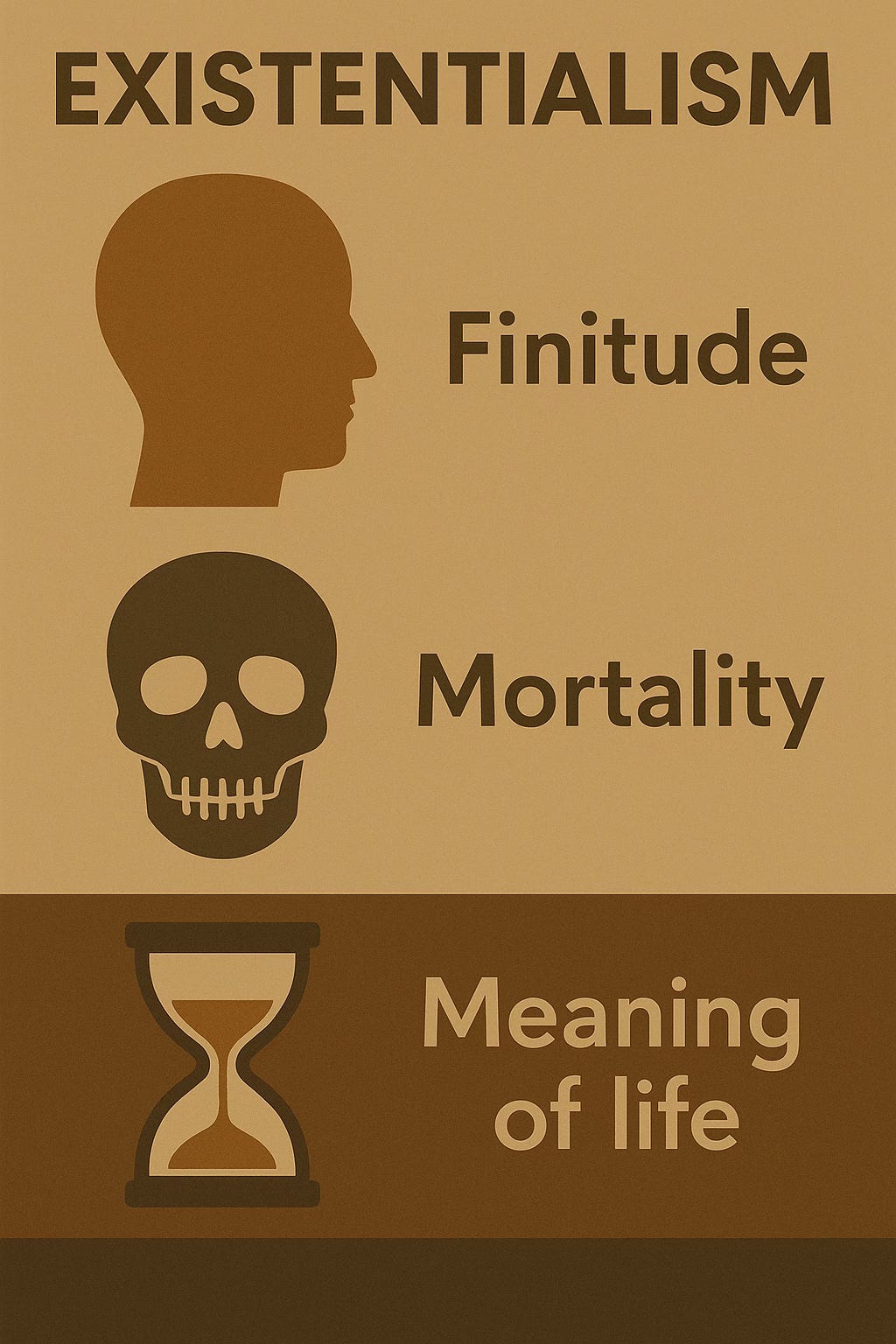What is Existentialism? (3) Existential Tension and the Threat of Nihilism
What I Wish I Knew about Existential Philosophy from the Start (Part 3)
This is the third installment in a short paid series on existentialism.
If you missed the beginning, you can read the entire first post for free here.
You can view the previous post here (paywalled after first main section).
The Unique Promise of Existentialism
When my students ask me what existentialism is, they aren’t just looking for a definition. They want to know why it’s important.
So I preface my response by telling them that because it prioritized lived existence over speculative thought, it cut against the grain of traditional Western philosophy and became an important way station on the road to more recent developments in contemporary thought.
But my students aren’t really asking about existentialism’s historical, academic importance. What they really want to know is why they should care about it: if it’s still relevant and matters for their lives today.
When I was first learning about existentialism in college, I had the same questions. Yet no matter how many books, articles, and scholars I consulted, I could not find a consensus about what unified the various existentialist philosophers into a unique philosophical movement. And so I had a difficult time making my way through existentialist texts and understanding what I should get out of them.
As I laid out in our first post, I soon came to understand that existentialism is very hard to define. It was a very diverse philosophical movement, composed of thinkers that did not always agree.
And as we saw in the previous post, some of the main existentialist thinkers even rejected the existentialist label.
But as I came to learn more, I began to understand that despite the diversity, shortcomings, and differences in the movement, existentialism is still a living promise that continues to hold unique relevance for us today.
So I tell my students that we can begin to find the uniqueness of existentialism as a whole if we hone in on two core outlooks that helped orient each thinker within it.
Every major existentialist pointed to basic experiences where life stops making sense. Then, in response to these, each one of them rejected despair by affirming the significance of existence—though in different ways.
We can define existential philosophy as a whole with these two core outlooks: existential tension and existential affirmation. Each existentialist thinker gives us a different vantage point from these two core outlooks.
This not only gives us the key to their texts; it also gives us a philosophical perspective on our lives.
Once we begin to learn how these thinkers grappled with these two issues, we can also then find its continuing relevance for us: how to be thoughtful about affirming our lives today against monumental forces that threaten to crush us.
The Difficulty of Defining Existential Philosophy
When I was a student, no matter how many books, articles, and scholars I consulted, I could not find a consensus about what unified the various existentialist philosophers into a unique philosophical movement.
As I’ve discussed previously, the defining feature of existentialism is very hard to articulate—even for scholars.
This difficulty remains even today.
Most contemporary academics take a ‘family resemblance’ approach to this issue. They argue that the label ‘existentialist’ groups thinkers who address a set of core concerns such as: finitude, mortality, and the meaning of life.
Keep reading with a 7-day free trial
Subscribe to Philosophy Walkthroughs to keep reading this post and get 7 days of free access to the full post archives.






